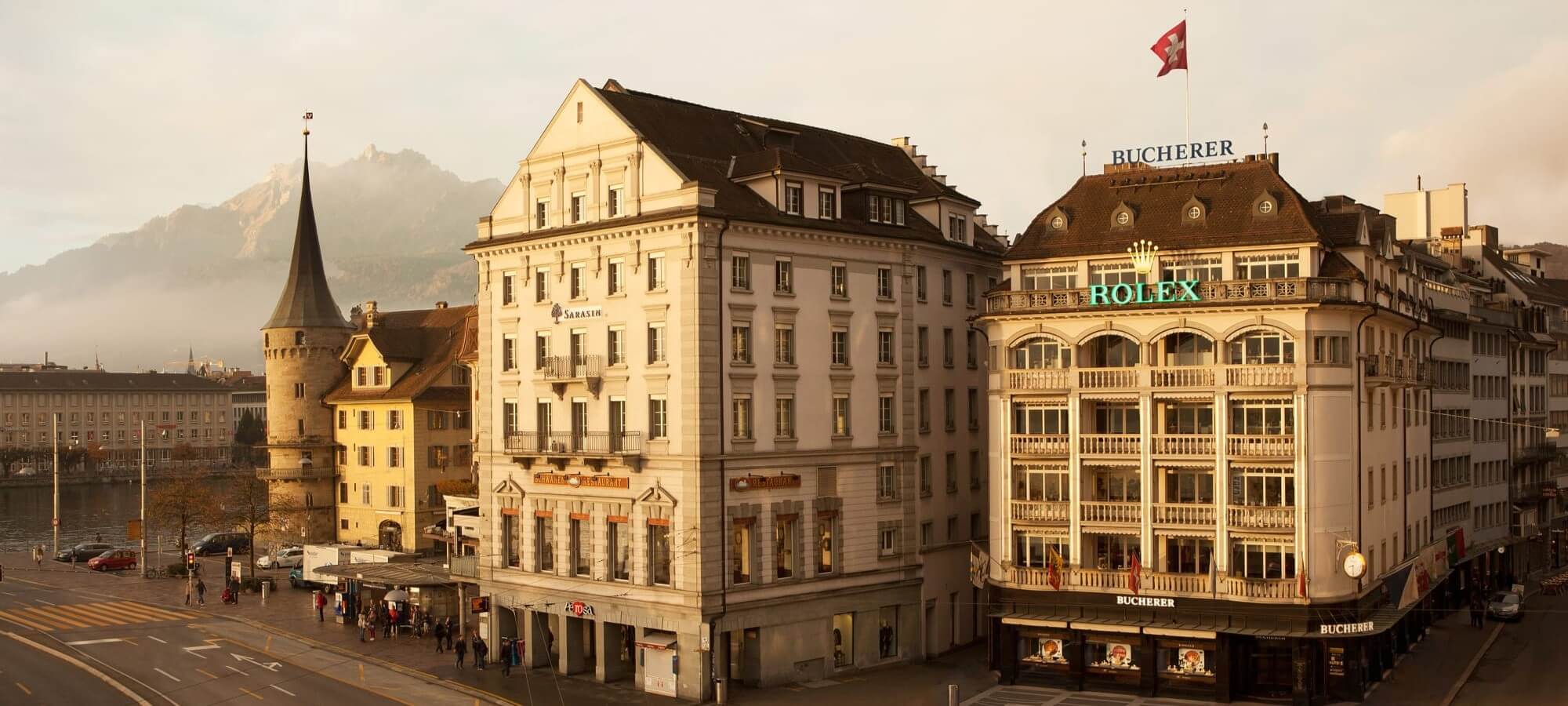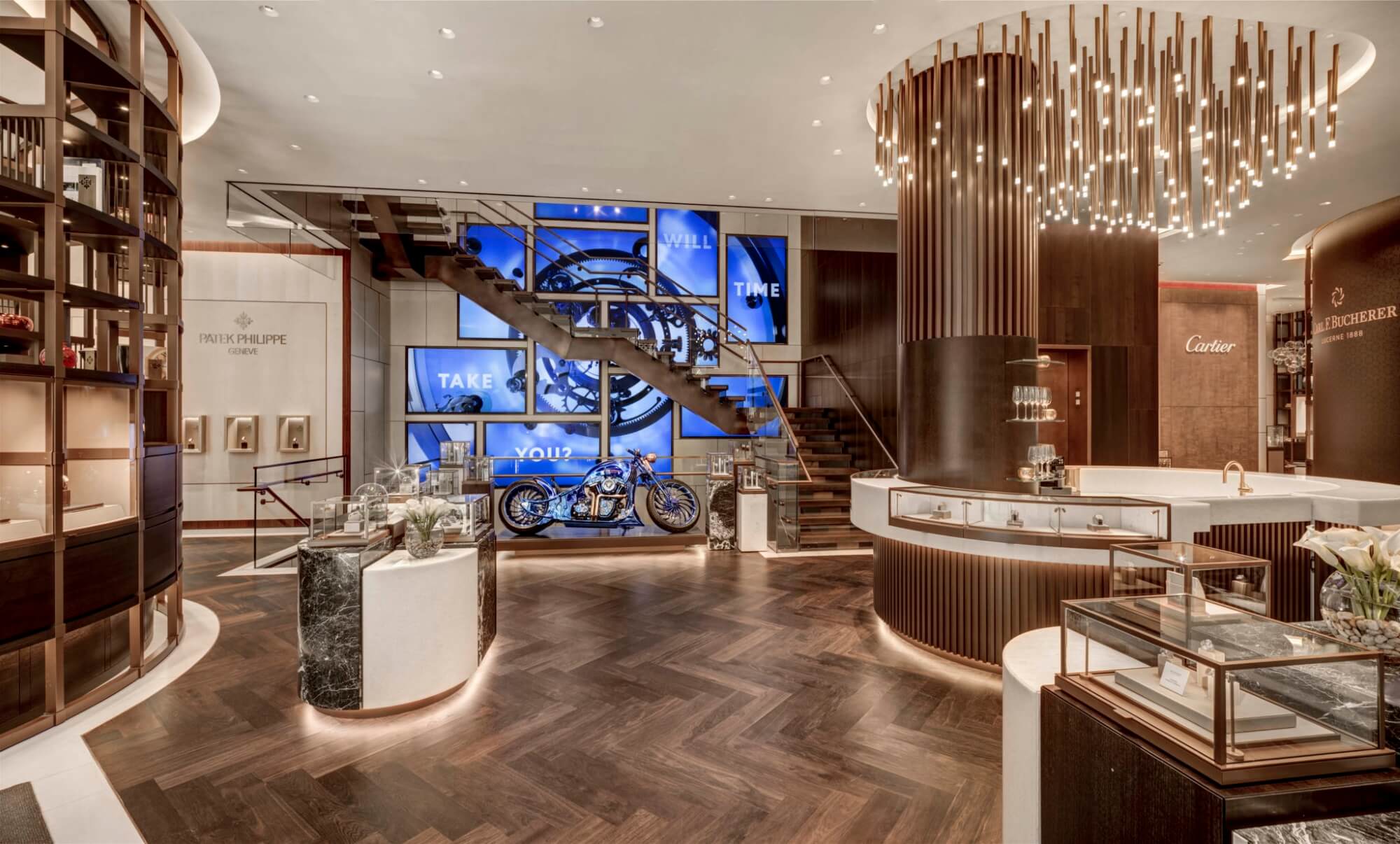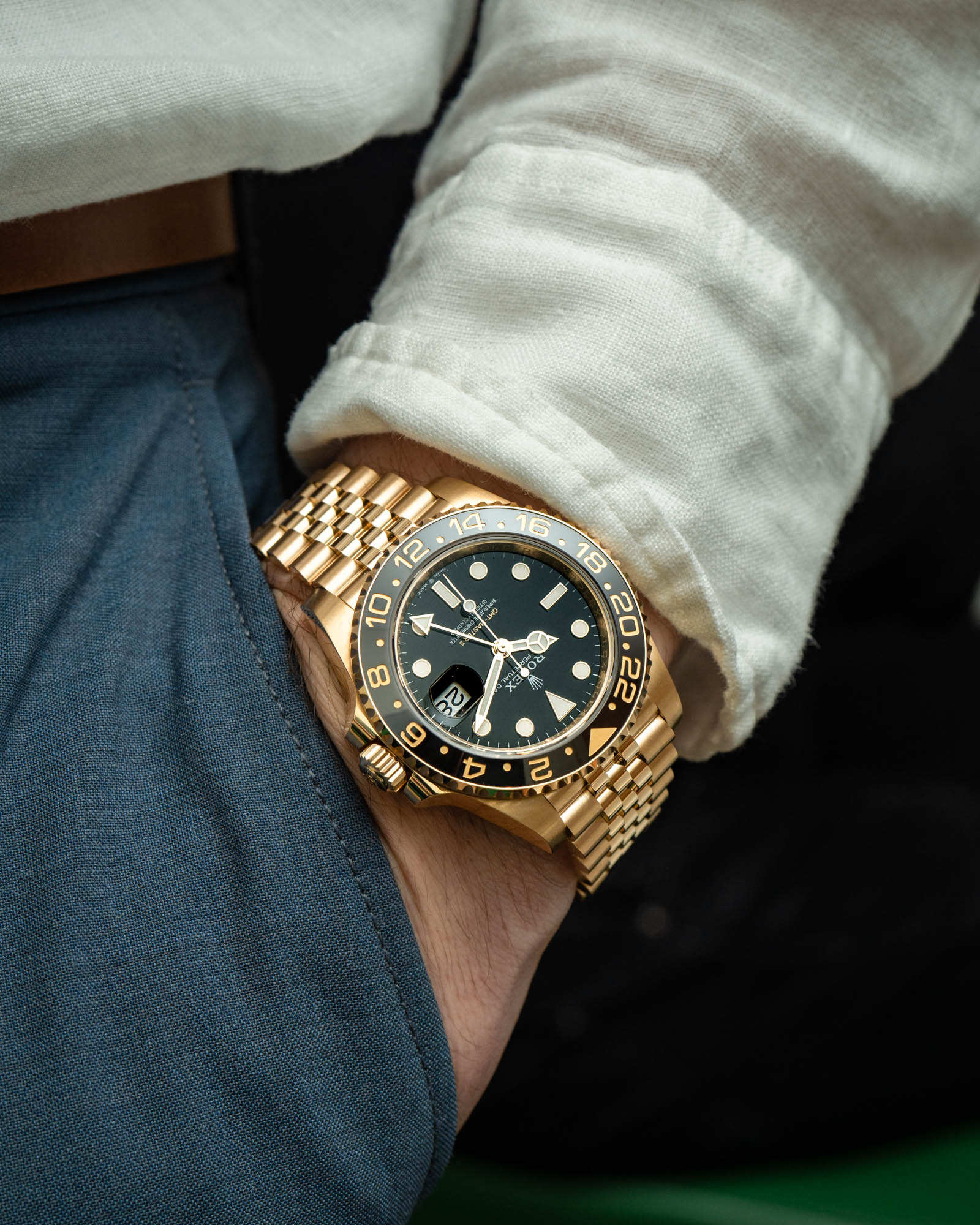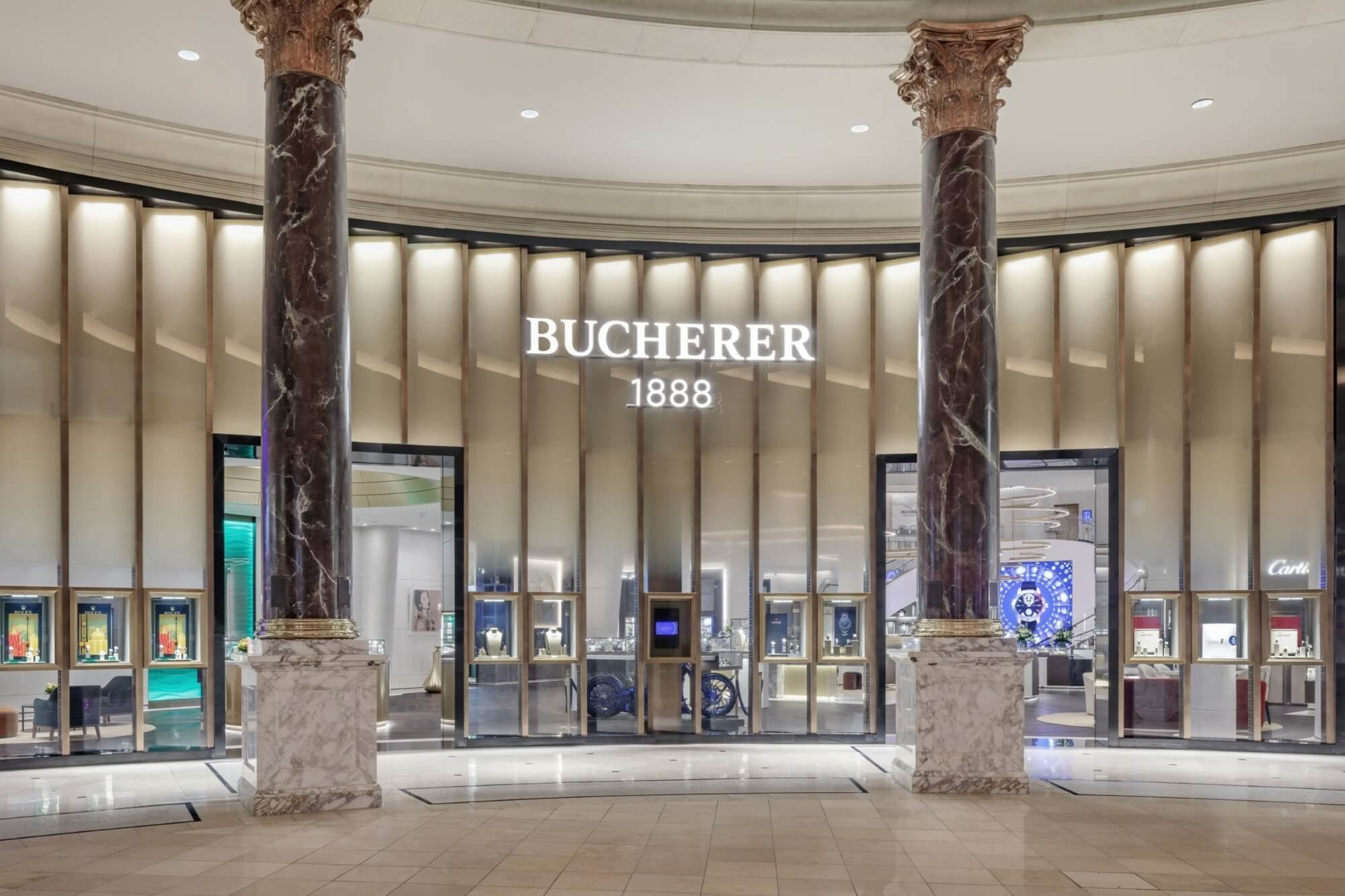In my career covering the watch industry for more than 15 years, I’ve never reported news that Rolex purchased a watch retailer. As far as I know, Rolex has never purchased a watch retailer before, and the brand’s stated policy is that Rolex supports but does not engage in selling its watches to the general public. Aside from a single Rolex-owned brand boutique in Geneva (where Rolex is headquartered), Rolex has maintained a public business distance from its army of dedicated watch retailer partners. That all changed today as Rolex announced its acquisition of the Bucherer Group, which is mainly a network of watch retail stores around the world. Why did this happen, and what does this mean for the watch industry?
Some context: Rolex has been working with Bucherer, another Swiss company, for nearly 100 years. Today, most Bucherer stores are authorized dealers for Rolex, as well as sister brand Tudor, which means that a lot of Rolex watches are sold to customers through Bucherer’s retail network. Bucherer was also chosen by Rolex as its launch partner for Rolex’s Certified Pre-Owned program, which launched in early 2023. Rolex works with a lot of other retailers (a bit shy of 2,000, globally, but that number is reportedly shrinking as Rolex focuses on retailer quality over quantity), but Bucherer might be the largest or one of the largest collections of retail stores that Rolex works with. That means Bucherer store “accounts” may collectively represent the largest single customer of Rolex and Tudor products.
Bucherer is based in Lucerne, Switzerland but has stores around the globe. In 2018, Bucherer made a huge retail in-road in the United States with the acquisition of Tourneau, a legacy chain of watch retailers all over America. Bucherer has slowly been rebranding Tourneau stores with the Bucherer name, and not long ago relaunched Tourneau’s massive retail store in Las Vegas as Bucherer’s largest store on the West Coast (it also has a flagship “Time Machine” location in New York City). Bucherer isn’t just a retail network but also has its own brands, including both jewelry and watches. Bucherer’s in-house watch brand is Carl F. Bucherer, which has also been popular with enthusiasts and has enjoyed excellent positioning given its internal status at Bucherer. As far as we know, all of these arms of Bucherer have been included in the sale to Rolex. How Rolex will manage a separate jewelry or watch brand is currently unknown.
According to Rolex, the story about acquiring Bucherer begins with the fact that the senior leader of Bucherer, Jorg Bucherer, did not have any direct descendants to leave the company to. Apparently, after an investigation of the possible buyers of Bucherer, Rolex seemed to make the most sense. This is despite the fact that Rolex has publicly stated its wish to separate itself from retail interests. So, what is going on?
One thing to remember is just how powerful Rolex is in the watch industry right now. An outsize percentage of all luxury watches sold are Rolexes. Rolex has easily been the top-performing name in luxury watches for a number of years, without any other brand really coming close. This market power probably insulates Rolex when it comes to possibly alienating third-party retailers who may worry that Rolex is now trying to get into their game. Given the market demand of Rolex, as well as the profitability of being an authorized dealer, it is not likely that the purchase of Bucherer will cause a rift between Rolex and its current retailer partners, who might be concerned that too much favor (in the form of treatment and product availability) may go to Rolex-owned stores. That said, I want to make it clear that I don’t think Rolex chased this deal. In fact, it’s very likely that Rolex purchased Bucherer to protect market stability and to ensure that another buyer doesn’t tamper with the delicate system that requires a lot of rule-following to ensure that Rolex watch sales remain ethical and fair in the brand’s eyes.
That brings up the interesting question of who other than Rolex could have acquired Bucherer? Who else would have the money? Who else would know how to make money with a complicated and multi-faceted business such as Bucherer? Really, there aren’t too many options. In the watch space, in particular, there are a few large watchmaker groups (none of which really appear to be good buyers given that third-party retail isn’t their core or even secondary business), and there are other watch retailer chains. Outside of the watch industry, there are pretty much only private investment companies such as CVC, which originally purchased Breitling after it was sold by the family that owned it. How, then, did Rolex win out?
 Much of the story is still a secret. We know that Swiss companies don’t like to cede control to non-Swiss entities, which would likely have been the case with any other buyer that Rolex. Bucherer and Rolex apparently agreed that even though the purchase would raise eyebrows, it was in the best interests of Bucherer, Rolex, the employees, the retail network, and even the other brands the retailer carries. (This is explicitly stated in the press release announcing the deal.) What I see here is a form of protectionism, as Rolex might not really know how to manage all this but feels more comfortable owning the problem than trusting it to someone else. There is a lot at risk. Other potential buyers of Bucherer could engage in all sorts of behavior that would not only erode the brand value of Rolex but also of the many other brands that Bucherer carries. Apparently, there was a fear at Rolex and Bucherer that another buyer could do anything from liquidate company assets or over-leverage Rolex watch popularity and engage in activity that could harm the brand and its retail experience for many buyers. Rolex and Bucherer clearly had to contend with both the immediate dangers of another new Bucherer owner and a long list of potential problems that could occur. There is also a very strong cultural push to keep Swiss things Swiss.
Much of the story is still a secret. We know that Swiss companies don’t like to cede control to non-Swiss entities, which would likely have been the case with any other buyer that Rolex. Bucherer and Rolex apparently agreed that even though the purchase would raise eyebrows, it was in the best interests of Bucherer, Rolex, the employees, the retail network, and even the other brands the retailer carries. (This is explicitly stated in the press release announcing the deal.) What I see here is a form of protectionism, as Rolex might not really know how to manage all this but feels more comfortable owning the problem than trusting it to someone else. There is a lot at risk. Other potential buyers of Bucherer could engage in all sorts of behavior that would not only erode the brand value of Rolex but also of the many other brands that Bucherer carries. Apparently, there was a fear at Rolex and Bucherer that another buyer could do anything from liquidate company assets or over-leverage Rolex watch popularity and engage in activity that could harm the brand and its retail experience for many buyers. Rolex and Bucherer clearly had to contend with both the immediate dangers of another new Bucherer owner and a long list of potential problems that could occur. There is also a very strong cultural push to keep Swiss things Swiss.
In its release, Rolex affirmed that Bucherer will “continue to independently run its business.” That is probably mostly true, especially for the time being, but it is also a statement that conflicts with the nature of the sale. Rolex did not purchase Bucherer in order to not have any control over it. Rolex has very specific goals in mind for Bucherer in order to maintain the kind of stability and consistency it wants. Rolex likely does not view the purchase of Bucherer as a business opportunity but rather as a complicated responsibility. Much of this is evidenced in the aforementioned release, which focuses more on reassuring parties that things will remain “unchanged” as a result of the sale and that the business arrangement is a form of “solution” for the parties and the industry. Here, Rolex isn’t the hunter, but rather a protector of sorts.
There are a number of steps to come, as this is not a finalized matter. Rolex made it clear that the Swiss competition authorities (there is a market monopoly concern here, of course) still have to rule on the matter and possibly issue guidance on the nature of the relationship. My belief is that Rolex will want to spin off the operation of Bucherer as soon as possible. It will likely install managers that it prefers, spending a few years trying to determine the best way of integrating or keeping the two businesses separate. All the while, Rolex and Bucherer will have to fend off rumors and conspiracies as to what they are planning and how it will affect the watch market, in general.
One of the stranger positions this puts Rolex in is related to new areas of conflict of interest with its retailers. Rolex will have to carefully navigate what it means to have its own stores that sell Rolex watches, as well as work with its large legacy network of valued third-party retailers around the world. Rolex may very well find a way of playing fair with all entities involved, on paper, but there will nevertheless be anxiety about what the relationship means for years to come. I would stress caution when forming opinions about this situation because it is still too early to know exactly how it will play out, what it will mean for customers and for Rolex availability, and what it means for Bucherer stores and the brands they carry. Rolex mostly has an incentive not to rock the boat, and instead to create the perception of casual stability and permanence. It doesn’t want to appear to be shaking up its own retail strategy, nor does it want its acquisition of a retailer to make the watch sales market look weak. And Rolex is probably the only entity able to acquire Bucherer that was willing to honor the status quo as much as possible.
The coming months, and even years, will see a more complete “integration” of Bucherer into Rolex. It will also test Rolex’s theory that it is “convinced that this acquisition is the best solution not only for its [Bucherer’s] own brands but also for the watch and jewelry partner brands” that the stores carry. More investigation is necessary to understand what factors in watch retail prompted this protectionist move by Rolex, and if other parts of the watch retail industry are similarly affected or susceptible. This news also comes at a time when watch retail around the world is increasingly fragmented. Between brand-owned stores, brick-and-mortar authorized dealers, and the legion of ways people can purchase both new and used watches online, the ways people can purchase watches today are remarkably diverse — some might argue too diverse. My instinct tells me that the next few years will bring a fair amount of consolidation in luxury watch retail. This move by Rolex might be just the tip of the iceberg. Please follow aBlogtoWatch for more developments in the story of Rolex’s purchase of the Bucherer watch retail and brand group. For more about the two companies, visit the Rolex website and the Bucherer website.






